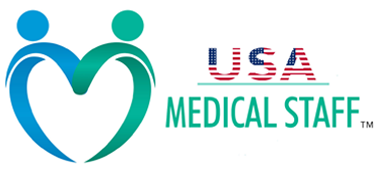The odds are high that burnout will strike every healthcare professional at some point. Health workers are at increased risk for the stress syndrome because of the intensity of their work and the emotional bonds they form with the people they’re helping, experts say.
“Most people in the healthcare professions carry their jobs home with them,” says Sandy Ewing, an expert in burnout prevention and the owner of Sandy Ewing Communicates, in Preston, Connecticut. “It’s good to really care about your patients. But if you don’t know how to distance yourself at times, it will be a problem.”
Henry Pfifferling, PhD, director of the Center for Professional Well-Being, in Durham, North Carolina, urges healthcare workers to recognize and address their own needs. “Healthcare providers think, ‘I went into this for patients and now there is no time for me. I have nothing left to give,'” he says. Eventually, health professionals who constantly put their patients’ needs above their own will start to burn out.
What Is Burnout?
Generally, burnout is caused by a person’s inability to relieve the physical and mental symptoms associated with unrelenting stress, Ewing says. It can show up as poor job performance, an impersonality with patients and lack of motivation. Health problems such as high blood pressure, insomnia, depression or addiction can also be signs of burnout. The degree of burnout and the way the syndrome manifests itself vary widely from person to person. “First-degree burnout” may include nothing more than a negativity about the workplace, while “third-degree burnout” could be so bad that a health professional has no interest in ever going back to work in the field, Pfifferling says. Another way to define burnout is “emotional exhaustion,” he says.
Warning Signs
Generally, burnout is a progressive phenomenon, signaled by subtle changes in mood, Pfifferling says. People who are on the verge of burnout take a long time regaining their energy and positive attitude about their work. For example, if it takes a week rather than a weekend away from the workplace to restore your energy, you may be burning out. A health professional’s burnout level can also be measured at the beginning and end of each day, Pfifferling says. If you’ve always awoken in the morning looking forward to the day and now you don’t, burnout may be the cause. And at the end of the day, “only recollecting the negative parts of the day is a serious sign,” Pfifferling adds.
Stomp Out Burnout
People at risk for burnout can take action to avoid it, experts say. Here are some of their suggestions for avoiding work-related burnout:
- Bond with Colleagues: Reaching out to colleagues and discussing difficult situations can help to reduce stress, Pfifferling says. Traditionally, he contends, there has been a lack of positive feedback among health professionals, which fuels isolation and burnout.
- Talk It Out — and Let Others, Too: A friend, colleague, counselor or career coach can help a person beat burnout just by listening. “Working with someone can help you clarify your vision and what motivates you,” and help you come to terms with the clash between your expectations and the reality of your job, Pfifferling says. Employers should also play a role in fostering a more supportive working environment, he says. “Organizations should look at provider satisfaction with an attitude that if someone is complaining, it’s not that they’re a complainer, but that something needs to be fixed,” he says.
- Don’t Lose Sight of the Forest for the Trees: The most important step people can take to prevent burnout is to constantly evaluate their life priorities and keep them in mind, Ewing says. She asks her clients to think about the different areas of their lives — family, career, hobbies and religion — like pieces of a pie. She has them divide the pie in two: how their life is actually sliced and how they’d like it to be sliced. Burnout is preventable in the long term if you tailor your day-to-day activities to reflect how you’d like your pie sliced.
Checklist: Are You Burned Out?
Because of the intensity of their work and their emotional investment in patients, healthcare professionals suffer a high rate of burnout. Although anyone can suffer from burnout, there are certain personality traits that put a person at risk, says Ewing. She and other experts say people are most at risk of burnout if they:
- Don’t know how to say “no” to demands on their time and energy.
- Assume added responsibility when they are already working at capacity.
- Consistently sacrifice their personal lives for work.\
- Lack control in their positions.
- Regularly suppress their emotions.
- Don’t discuss their problems or feelings.
- Routinely criticize themselves.
- Haven’t learned how to manage stress effectively.


